
7 minute read
Faith / Family / Friends / Farming
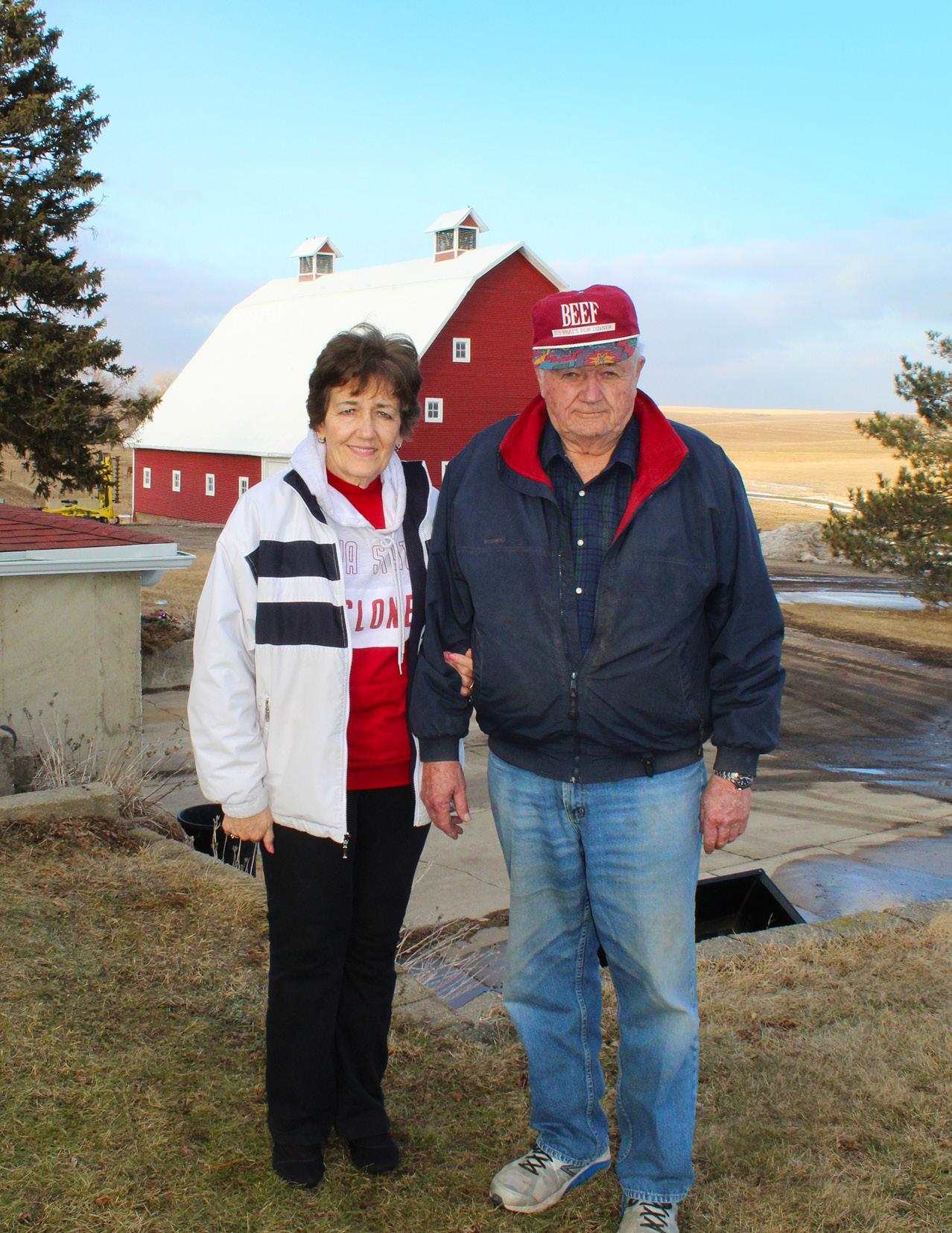
Meet the VOS FAMILY
Advertisement
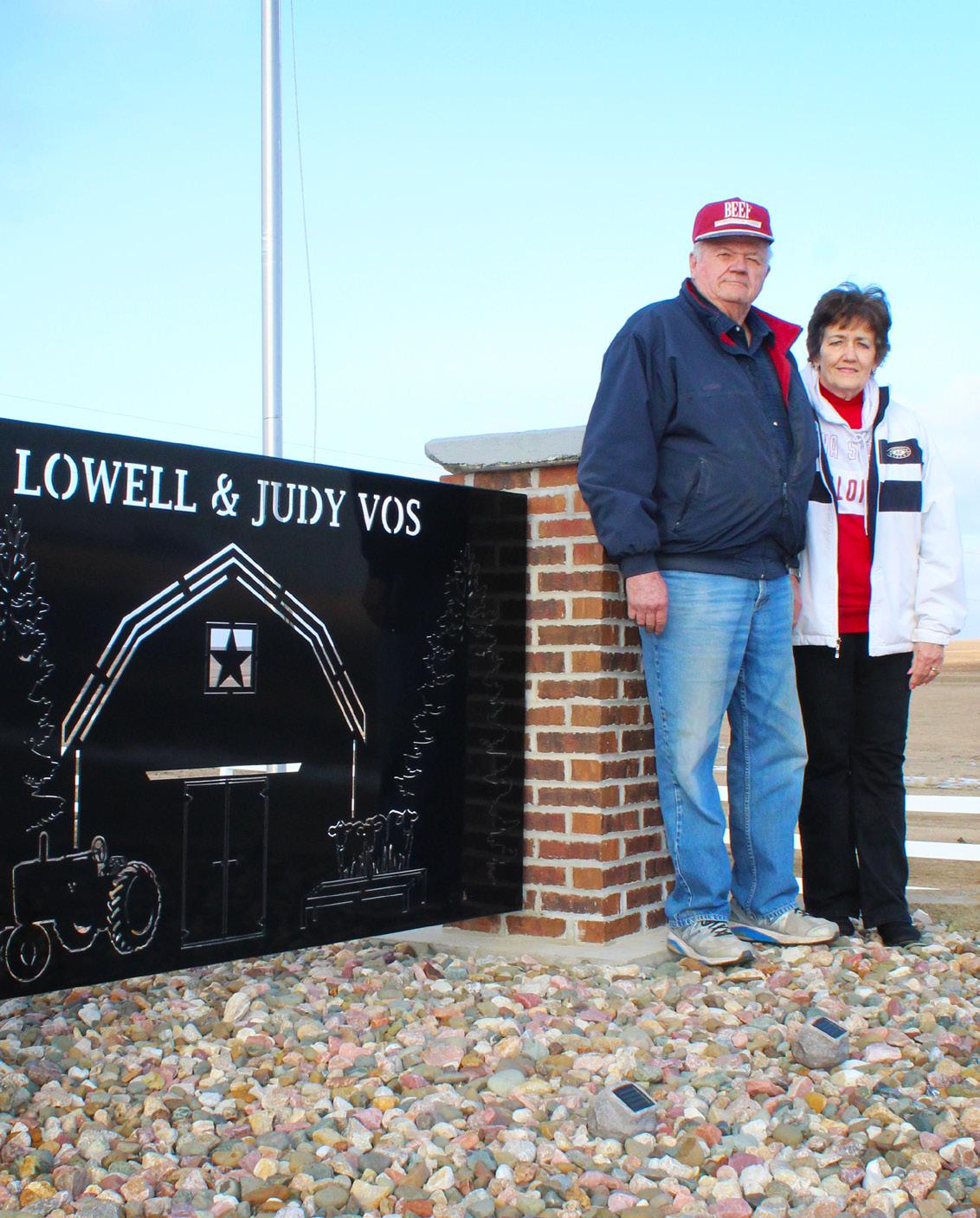
by Bob Fitch
You might call Lowell and Judy Vos fighters. On their farm west of Kingsley and south of Le Mars, they’ve fought the same battles that all farmers fight – the weather, the markets and the other daily trials of agriculture. On top of that, they’ve also fought federal intimidation. But, more accurate than calling them fighters, Lowell and Judy are perhaps best identified as advocates because they’re passionate about telling the real story of farming and food production.
“My dad, my brother and myself fed a lot of cattle,” Lowell said. As Idlewild Farms, Clarence, LeRoy and Lowell Vos fed 10,000-12,000 cattle annually. “We custom-fed some and we owned some, about half and half. I continued to feed cattle after my dad and brother passed away. But in 2010, I quit feeding cattle. Fifty years was enough.
“One of the reasons I quit is, in 2008, Judy and I had a serious run-in with the EPA regarding runoff and their computer modeling. There were four producers who were picked out and cited by the EPA. Judy and I decided to fight it and took it to court. There were a lot of negotiations, back and forth. We weren’t getting anywhere. The EPA people were in my house, taking my feed records. It got to be very bad intimidation.”
Lowell and Judy fought the citation from the U.S. Environmental Protection Agency which ended up in a 12-day trial in federal court in Des Moines. “To make a long story short, we won. We beat them. But we have always said, we won but we lost. We never got paid back all the legal fees. It hurt bad. But I think that we helped the cattle industry a lot. The computer modeling they were using at the time was thrown out because we proved it wasn’t accurate. The judge ruled in our favor,” said Lowell, who was a long-time leader in the Plymouth County Cattlemen’s Association and the Iowa Cattlemen’s Association.
Judy said, “It was like David and Goliath. They had 12 attorneys on their side.” Lowell said, “After
In September, the Vos farm will again host the “Dine at the County” line event. Photo by the Morningside College Applied Agricultural and Food Studies Department and Morningside Ag Club
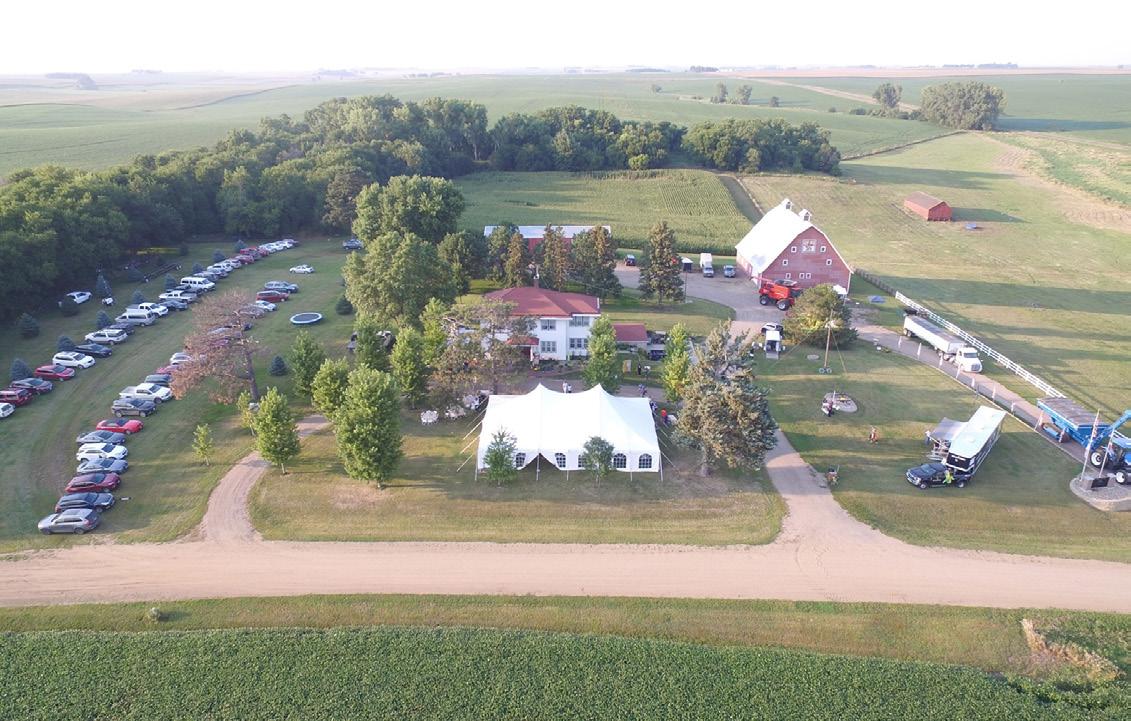
we won that lawsuit, I don’t know how many phone calls we got thanking us for what we did.
“Since that lawsuit, the EPA is way better to work with than the way they were before. That’s a big plus right there. They’ve changed their ways a little bit. But the EPA is not going away. We’ve got to work with them. But they’ve got to play fair – and they didn’t play fair with me,” he said.
“I don’t regret it a bit even though it was a terrible thing for us. But, if I had to, I’d do it again.” And Judy added: “And I’d be right there behind you.”
Lowell said, “It was the right thing. My dad always said ‘What’s right is right, and what’s wrong is wrong.’
“People talk about corporate farming. But that’s not what we’ve got here in Iowa. It’s farm families. They were born here, they live here, they raise their families here. They just want to live a good life. They take just as good of care of that cow or that pig as they do their own kids.”
Another avenue for their advocacy is the “Dine at the County Line” event which they will host on their farm for the fourth year this September. Presented by Siouxland Ag in the Classroom and Iowa State Extension & Outreach of Plymouth County, Dine at the County Line is an evening of socializing and informationsharing at the Vos farm (which is located right on the PlymouthWoodbury County line). The goal of the event is to provide a setting for local consumers and community leaders to connect with area farmers who personally share agriculture’s story. Sponsored by pork, dairy, corn and soybean associations, and businesses such as American Bank, Iowa State Bank, Northwest Bank and Prime Bank, the dinner also includes a guest speaker who explains a relevant agrelated issue in terms an average consumer can understand. “Farmers are too proud and we don’t like to have people around. I think we’ve got to open ourselves up and have people come out and look at the cows, look at the pigs, and how we take care of them. We’ve got nothing to hide,” Lowell said.
“Consumers have more questions today. They want to know where their food comes from. They want to know the history of the animal before it’s harvested. There’s nothing wrong with that. If we have a good product, let’s show them and be proud of it. We’re here to make a living. We eat the same food they do,” he said.
“As far as I’m concerned, the food in the United States is the best there is and the cleanest there is. I’m not saying it’s perfect because we have problems here and there. But we get after it and we correct it. I’m very proud of our agricultural system, not just cattle, but hogs, chickens and dairy, too.”
Judy said, “People think we’re polluting the air and the water. But farmers don’t put on any more nutrients than they absolutely have to. People don’t get it – they think we’re out there just dumping a pile of nitrogen or phosphorus ruining the soil.” Lowell added, “Judy and I go to First Presbyterian Church in Sioux City. We’re the only farmers there. You can’t believe the questions we get. They get the wrong story. It’s like a game of telephone. You try to leave the land better than when we started. It’s our bread and butter, that field out there. You can’t treat it badly or it will break us.”
New developments in the world of consumer food products also concern them. “Something that really bothers me a lot is what I call ‘food bullying.’ Fake meat, fake milk. I’m not saying they are so bad you’ve got to stop them. They’re already here. But people need to learn how to read the ingredients of the food they buy. Don’t buy it just because it says organic on the front. These marketers, they have so many gimmicks. I call that ‘food bullying’ because you really don’t know for sure what the reality is,” Lowell said.
“Fake food is going to be an option. It’s not going away. Tyson and Cargill have announced that they’re going to put big bucks into that. They don’t want to miss the train. It’s all about the money. But if you really study it, you wouldn’t want to eat it. We have to prove to the shopper that our food is better and safer,” he said.
Judy, who grew up in Jefferson, S.D., also played another role as an agricultural advocate through her 30-year career at the Farm Service Agency in Woodbury County. That was in addition to her job as the mother of three children. Their oldest son Mark is a realtor with Keller-Williams Real Estate in Sioux City. Daughter Suzanne is the CEO of the JC Penny store in Davenport. Judy said Mark and Suzanne have taken the hard work lessons of the farm with them in their careers.
“I laugh to think of our daughter Suzanne. She hated to load cattle in the morning before school.
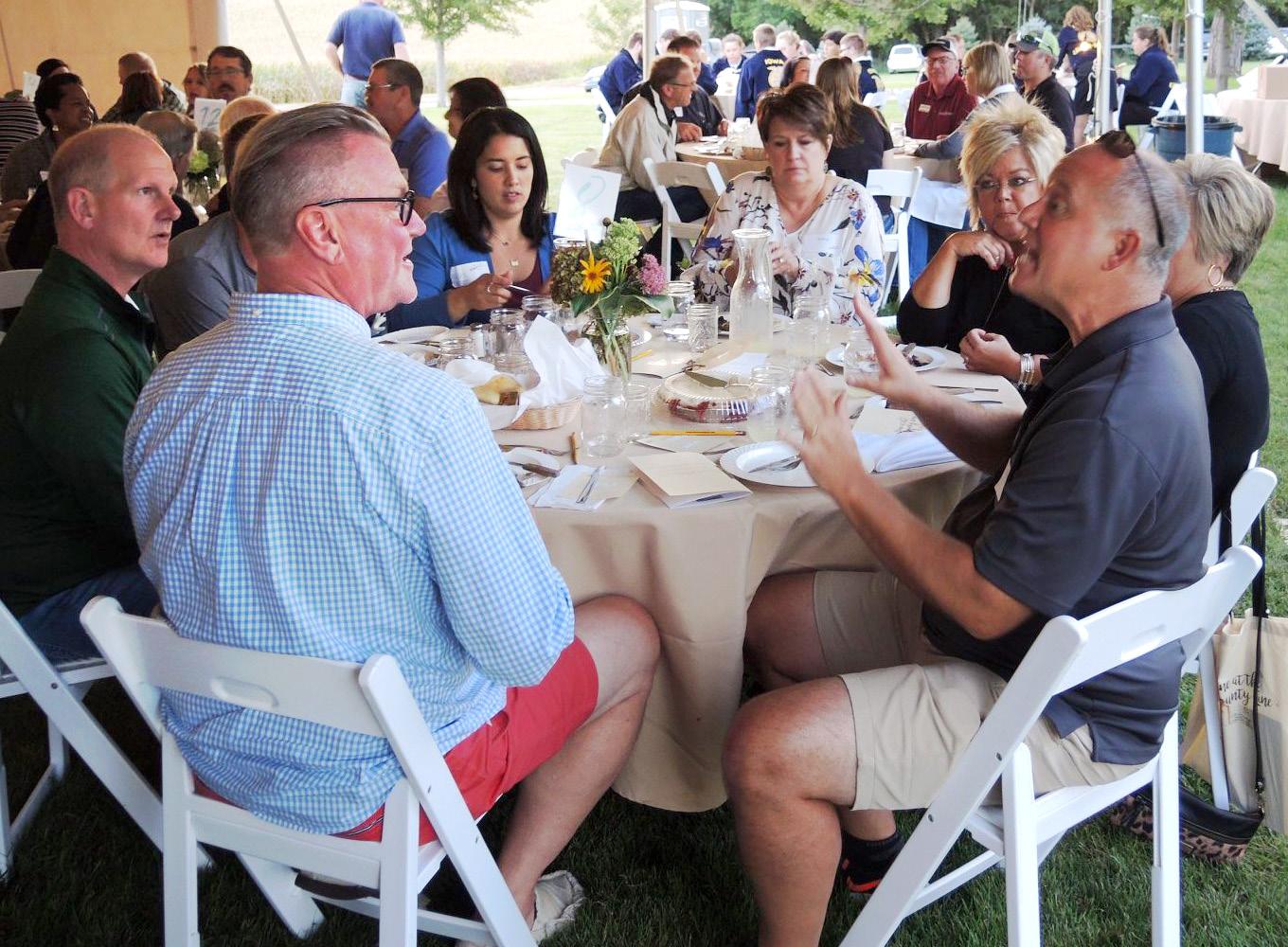
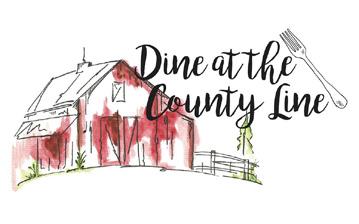
She’d come down with ear flappers on, boots up to her knees, a big winter coat, and say ‘Oh, it’s so cold.’ Today, she loves to tell the stories of how terrible it was,” she said.
Youngest son Mike has made the family farm his career. Lowell said their son is happily engaging with today’s rapidly-emerging technology. “Mike bought a new planter two years ago. It gets pretty bad when the manual for the monitor was thicker than the manual for the planter.
“Farming is easier now because the equipment is so much better – whether it’s green, red or blue. And it works. Back then, you used to hope the equipment would make it through the day, and then you’d work on it half the night to make it work for the next day,” he said.
Even with the rapid technological advancement, a strong work ethic is still a fundamental requirement of farming. “When you talk to agriculture families, they’re all pretty happy. It’s not that they haven’t had hard times, but they’re happy.
“It’s probably the best place in the world to raise a family,” Lowell said. “Don’t tell everybody – because it’s getting kind of full. We’re the luckiest people in the world right here.”


